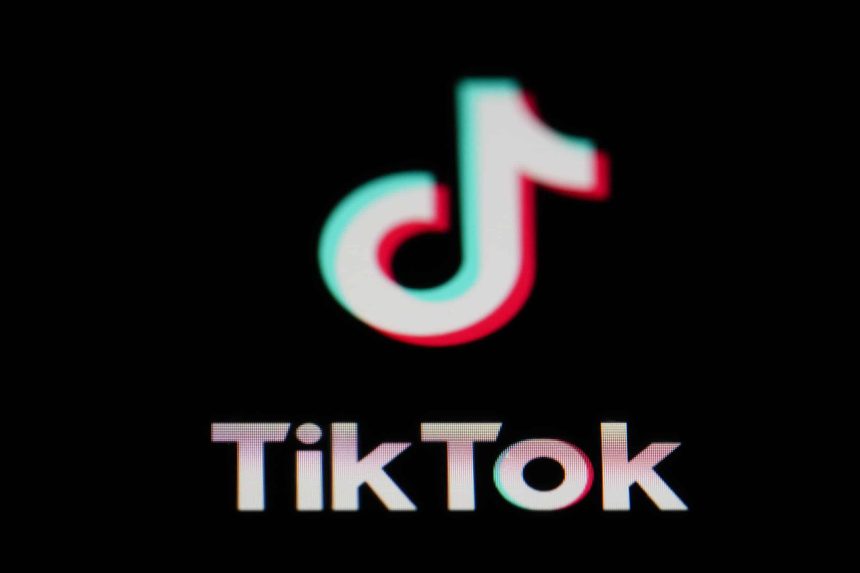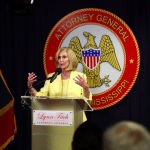Over the past month, the situation regarding a proposed TikTok ban has significantly evolved since Republican President Donald Trump stepped back into office. The idea of a ban was first introduced nearly five years ago due to concerns over national security, international affairs, and U.S. data privacy. Currently, the administration is working on a way to “save” TikTok with the latest revelation being the creation of a government-run sovereign wealth fund on Monday afternoon that could be used to buy TikTok.
During his first term, Trump signed an executive order forcing ByteDance, the Chinese tech company that launched TikTok, to sell to an American company or be completely banned in the U.S. Since Trump proposed the social media platform’s ban in 2020, the app never completely shut down until Jan. 19 of this year, though the app was only offline for around 12 hours, due to several legal challenges and negotiations for any possible app alternatives. The controversy also raised numerous questions about tech platforms with Chinese influences similar to TikTok.

Democratic and Republican officials expressed concerns over TikTok’s potential threat to national security. They have also suggested measures to regulate the app before attempting to ban the platform. Initially, the Republican administration pushed for the use of the app to be completely prohibited or for the app to be sold to an American investor immediately — while the Democratic administration decided to take more of a “regulation and security” approach to the situation. Despite their efforts and differing strategies, both parties culminated to work together to create state-level bans on federal devices to alleviate any potential threat done by any foreign-owned social media platform.
TikTok lifestyle creator and Mississippi College senior Miles Taylor Leverette (@mtizzlesillylilfikfok), who has amassed a following of 66,500 followers with approximately 8 million likes on TikTok, shared her perspective on the situation.
“As a military fiancé, I know there are things that our government does not allow us to know, for our safety and the safety of others,” Leverette said. “Part of me wants to believe that there are serious security threats that we do not know about, and the government will not share with us because they have our safety and best interest in mind. Or is this something to just silence ‘unbiased news media’?… I do believe we have other issues to worry about. If we can block an app from everyone’s phone, why can’t we block child pornography websites and apps? I think we have bigger fish to fry.”
At the time, the Democratic administration launched a review of the situation which led to the conclusion to ensure that any U.S. data and its users were safe, especially from foreign-owned companies. Since then, the social media platform’s privacy and safe data practices in the U.S. have continually been scrutinized, leading the government to affirm stricter regulations on companies that manage significantly large amounts of personal data.
“TikTok’s algorithm is so in tune with your interests, I think trying to recreate that or find something similar is nearly impossible. If something happens worldwide, you know about it within hours, maybe even minutes,” Leverette commented. “When the Golden Globes happened, I did not watch it live, but I watched the whole thing just by scrolling on TikTok while it was going on. I do not think any other app can be that swift with pushing out content.”
When Biden signed a bill banning TikTok in April of last year, many influencers and users took to their personal social media accounts to voice their concerns. A lot of content creators expressed their immense anxieties about the possibility of their livelihoods being jeopardized, which then sparked wider discussions amongst the younger generation.
Several of TikTok’s users came together and called for action to express their push against the platform’s ban highlighting the importance of TikTok as a haven for expression and creativity.
RELATED: Mississippi influencer urges change of course in what he calls ‘dangerous’ TikTok ban
“I think we can advocate for the continuing use of the TikTok platform while finding a compromise to ensure our national security is intact. Taking away thousands of Americans’ jobs does not seem like it is in anyone’s best interests. Having our national security threatened does not seem like anyone’s best interest either,” Leverette said.
Fellow Mississippi College graduate student and athletic content creator Brock Kelly (@thebrockkelly), with over 24,600 followers and 539,000 thousand likes, believes that the possible ban on the platform encourages influencers to “learn from the past, adapt, and move forward.”
As talk of the ban continued, many of the entertainment app’s content creators used their time to alleviate any risks of losing their jobs by promoting their other social media platforms like Instagram, YouTube, and X accounts in hopes of diversifying their online presence in the event that the app did shut down, allowing them to maintain their fan base and protect their incomes and livelihood.
“I think a result of the ban is that creators now have to leave their comfort zones and what has always worked in the past in search of new methods for reaching their audiences, but I do not think the ban is targeting creators,” Kelly said. “If you call yourself a ‘creator,’ then get creative and find a solution to continue reaching your target audience. Stop complaining about change. Change is inevitable in the creative space, and that’s what makes creativity so incredible. It’s not an ‘anti-creator ban,’ or else they would be targeting all forms of media. It is instead a ban of one platform that has been controversial since it first launched in 2016.”
Many of the app’s content creators revealed the fragility of online careers on a single platform as well as the power that influencers have in creating and shaping online conversations by using their platforms for advocacy and commerce.
The situation remains tenuous. Any future actions regarding TikTok and any foreign-owned tech apps will depend on potential national security concerns and issues regarding international relations. The TikTok ban may have been temporarily averted, but the experience serves as a reminder of how quickly a social media environment can shift.
“If the government feels it is a threat to national security, then they have the right to step in. That is why the government is in place. I’ve heard people say on Instagram, X, and YouTube that the ban threatens their freedom of speech, but I do not see it as such,” Kelly concluded. “The inherent nature in which they can voice their opinions of the ban on other social platforms makes this argument pack much less of a punch. If the U.S. government was attempting to shut down every social platform, then that’s where freedom of speech would come into play.”







